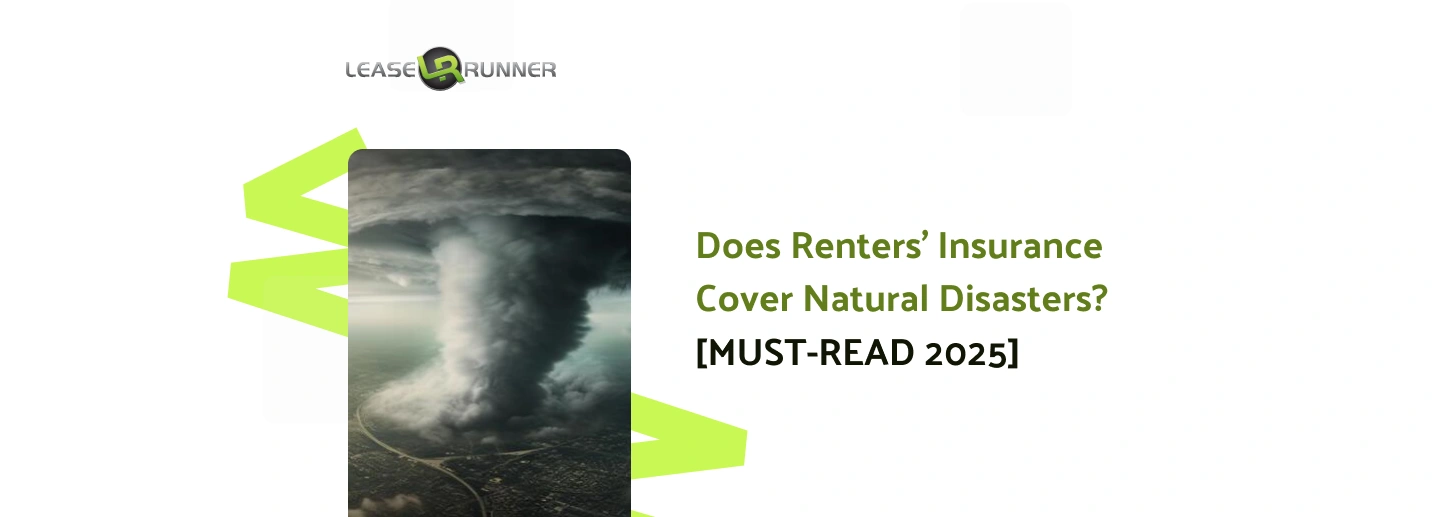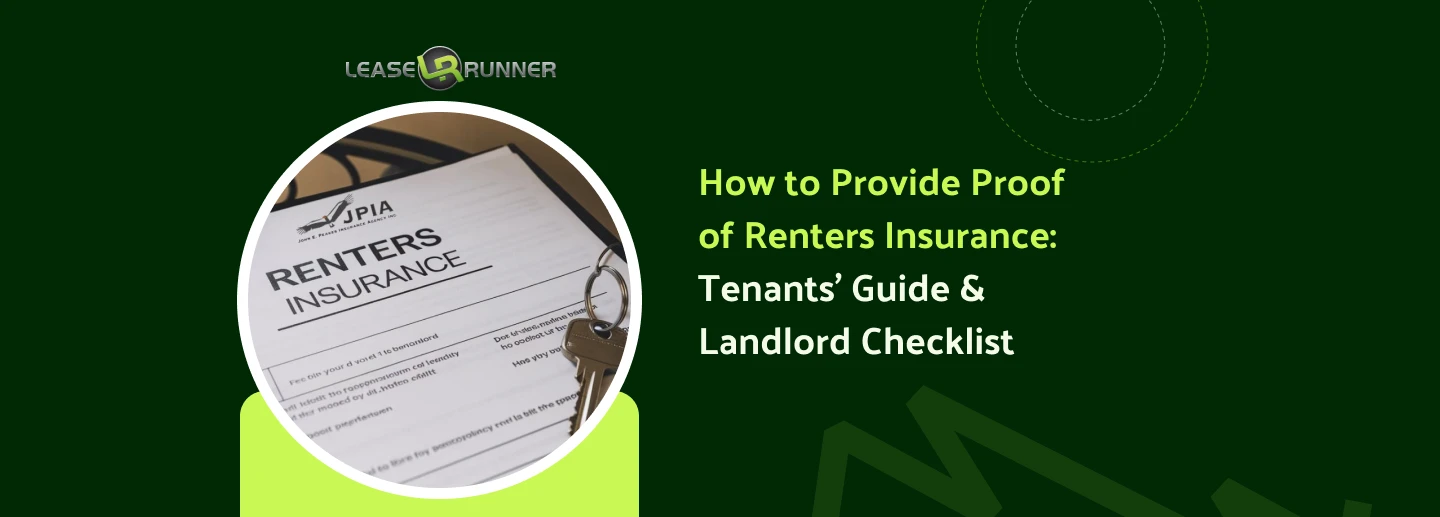Does renters' insurance cover natural disasters? Many renters and landlords ask this question when storms, earthquakes, or wildfires threaten their homes. At LeaseRunner, we see how vital it is to know if your policy protects against fire, tornadoes, or storm damage.
For example, if a hurricane floods your apartment, standard coverage may not help unless you have renters' insurance that covers flood.
If an earthquake shakes your city, would the renters' insurance cover that too? Always review your policy for gaps. Ask your agent about hurricane renters' insurance and progressive hurricane insurance.
Knowing what renters' insurance does not cover helps you avoid costly surprises and stay safe. Let’s learn more about this issue now!
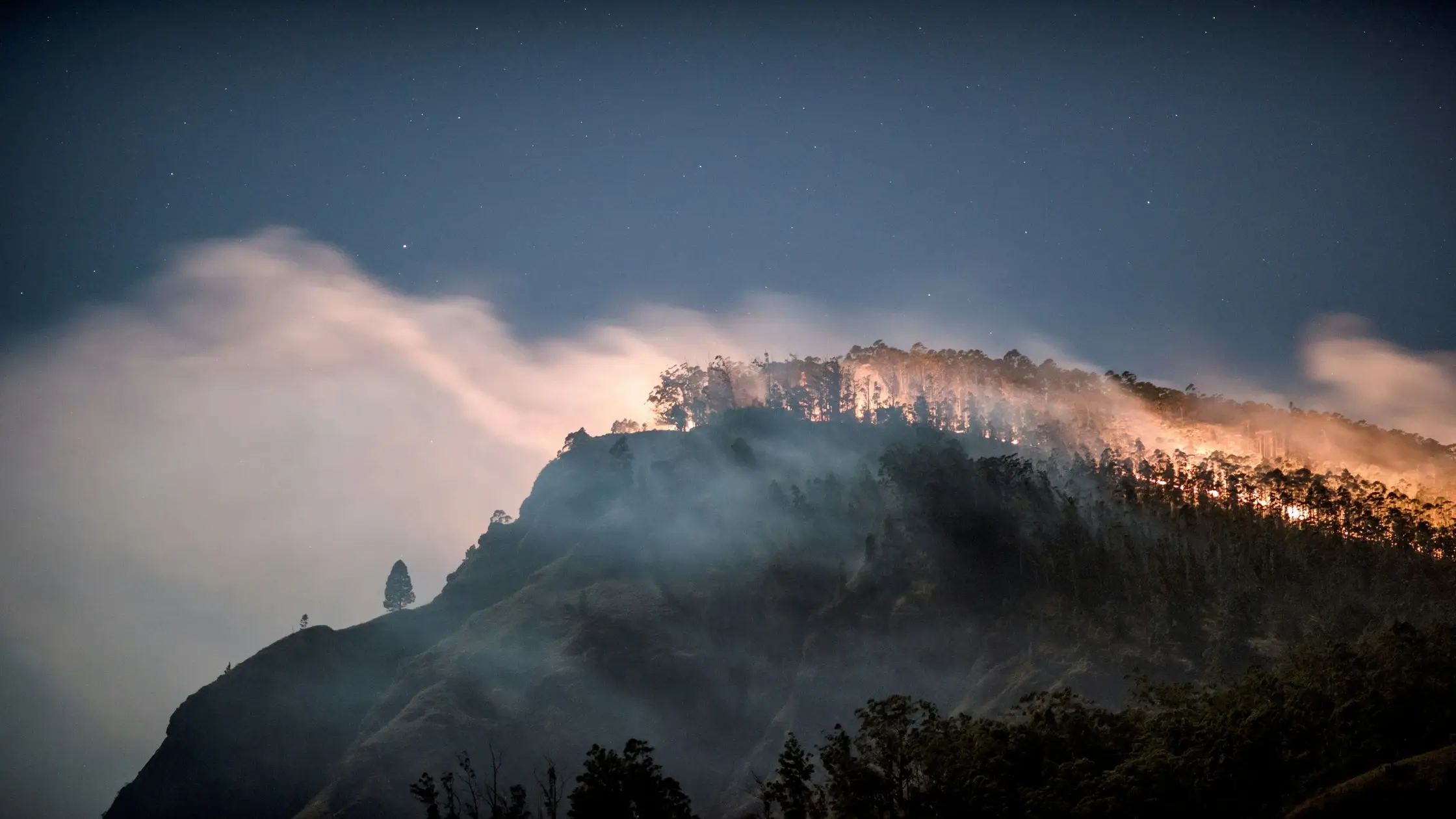
Quick Facts Table: Renters Insurance & Natural Disasters
Overview of Renters' Insurance and Its Role in Natural Disasters
The first step to protecting yourself against loss is to learn how renters' insurance works. Many renters think their coverage covers any calamity, but that's not quite true.
Then, does renters' insurance protect against natural disasters like hurricanes, tornadoes, and earthquakes? Yes and no occasionally. The little things matter. Let's take it apart.
What is Renters Insurance?
People who rent a house or apartment may get renters' insurance. It keeps your things and money safe in case of an emergency. Landlord insurance protects the building itself, while renters' insurance protects you, your possessions, and the hazards you face as a tenant.
Some of the most important safeguards are:
- Personal property coverage pays to repair or replace your items, including clothing, gadgets, or furniture, if they are stolen or destroyed. For instance, if a fire damages your couch or a robber takes your laptop, this coverage might help you get it back.
- Liability coverage protects you if someone gets wounded in your house or if you break someone else's stuff. If a visitor falls and breaks an arm, liability insurance will pay for their medical expenses and court fees.
- Loss of use (extra living expenses): If a calamity leaves your home unlivable, this pays for hotel accommodations, food, and other charges. If you have to leave because of storm damage or fire, this coverage will pay for your interim accommodation.
What does renters' insurance not cover?
Most standard plans don't cover damage from floods or earthquakes for tenants.
- If you reside in an area that gets hurricanes, inquire about renters' insurance for hurricanes or progressive hurricane insurance.
- If you live in a hurricane zone, ask about hurricane renters' insurance or progressive hurricane insurance.
- For earthquake risk, check, “Does renters insurance cover earthquakes?”—most do not.
- Some providers offer renters' insurance without a credit check for easier access.
Always review your plan for gaps like storm damage, tornadoes, or fire. Knowing these limits helps you stay prepared and avoid costly surprises.
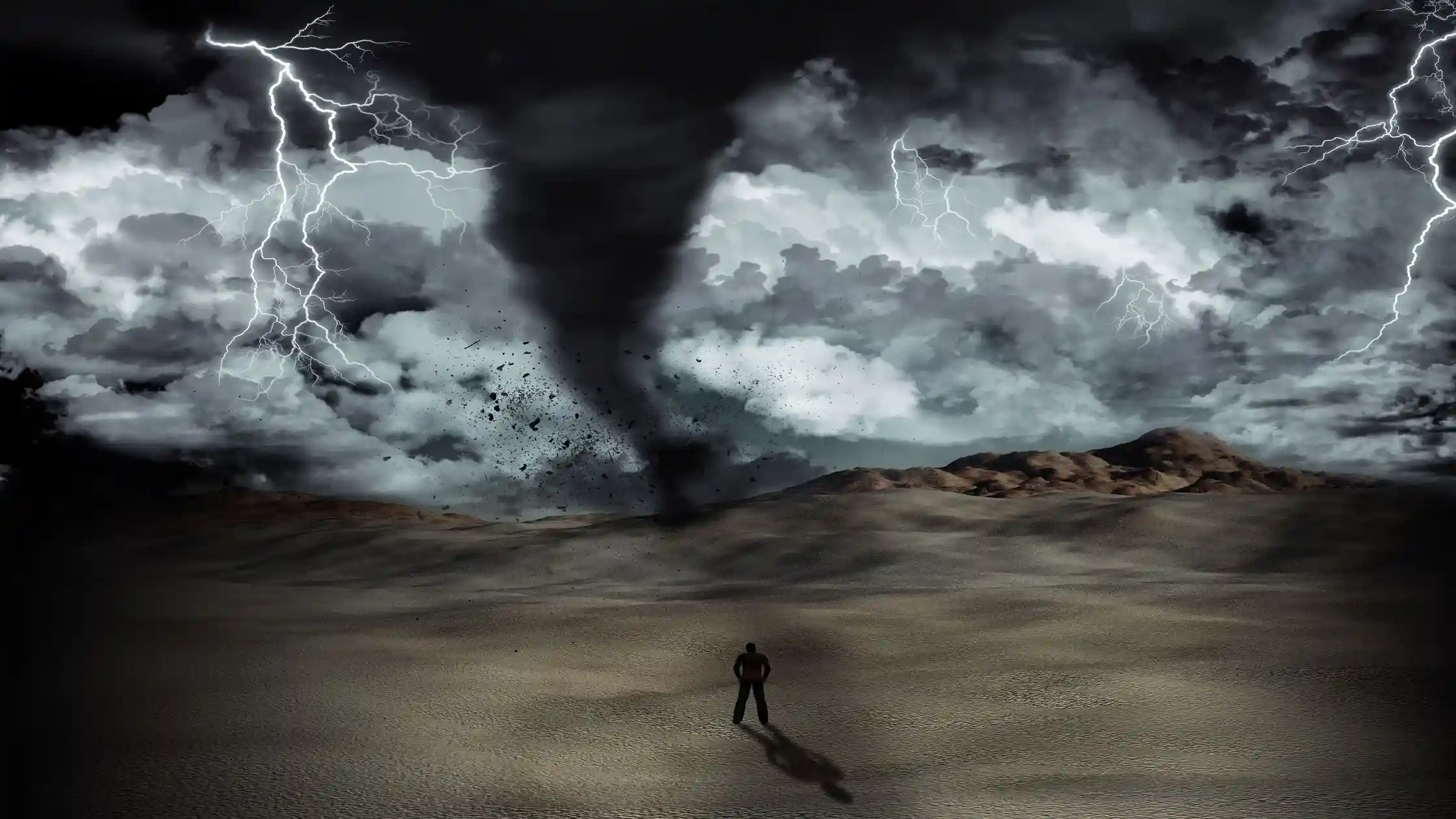
How Much For Renters Insurance?
Most individuals may get renters' insurance for a fairly low price. The typical monthly premium in the US is between $13 and $27. There are a few things that will affect your specific price:
- Where you reside (it costs more to live in high-risk locations).
- The worth of your own things.
- Your deductible is the amount you have to pay before your insurance kicks in.
- Your credit score (however, some companies will let you rent without checking your credit).
Assurant is one of the major insurance companies offering flexible renters' insurance plans. With Assurant, you can customize your policy by adjusting coverage limits and adding optional protections like earthquake coverage or rent protection if you lose your job.
At LeaseRunner, we provide a platform to sign up for Assurant’s insurance, making it easy for tenants to sign up for it directly through LeaseRunner. Coverage includes liability protection, replacement cost for belongings, and extras like pet damage or bedbug treatment in eligible states—all from a trusted, nationwide provider..
Why Is Renters' Insurance Important Against Natural Disasters?
You never know when a natural calamity may happen. Storms, tornadoes, hurricanes, and fires are happening more often and are worse. You don't want to find out that your insurance doesn't cover your loss when calamity strikes.
That's why it's so crucial to know whether renters' insurance covers natural disasters. The correct insurance may make the difference between a rapid recovery and losing everything.
LeaseRunner encourages all landlords and tenants to carefully read the contents of their policies. Don't simply assume you're protected. Ask questions, look for exclusions, and think about getting additional coverage if you live in a high-risk location.
Which Types of Natural Disasters Are Covered by Renters' Insurance?
Many renters wonder, Does renters' insurance cover natural disasters? The response changes depending on the catastrophe. There are different regulations, limitations, and viable solutions for renters and landlords for each event. This is how coverage works for each main type.
1. Tornadoes and Windstorms
Most ordinary plans do cover windstorms; therefore, does renters’ insurance cover tornadoes? Yes, the tenant’s things will be covered by the insurance. For instance, if a tornado breaks your window and rain damages your devices, your insurance may assist in paying for new ones.
Your insurance doesn't cover the building's structure; however, that's the landlord's job. If you reside in a location that is prone to tornadoes, always check for windstorm exclusions or higher deductibles. After a tornado, take pictures of all the damage, call your insurance company, and let your landlord know about any problems with the building.
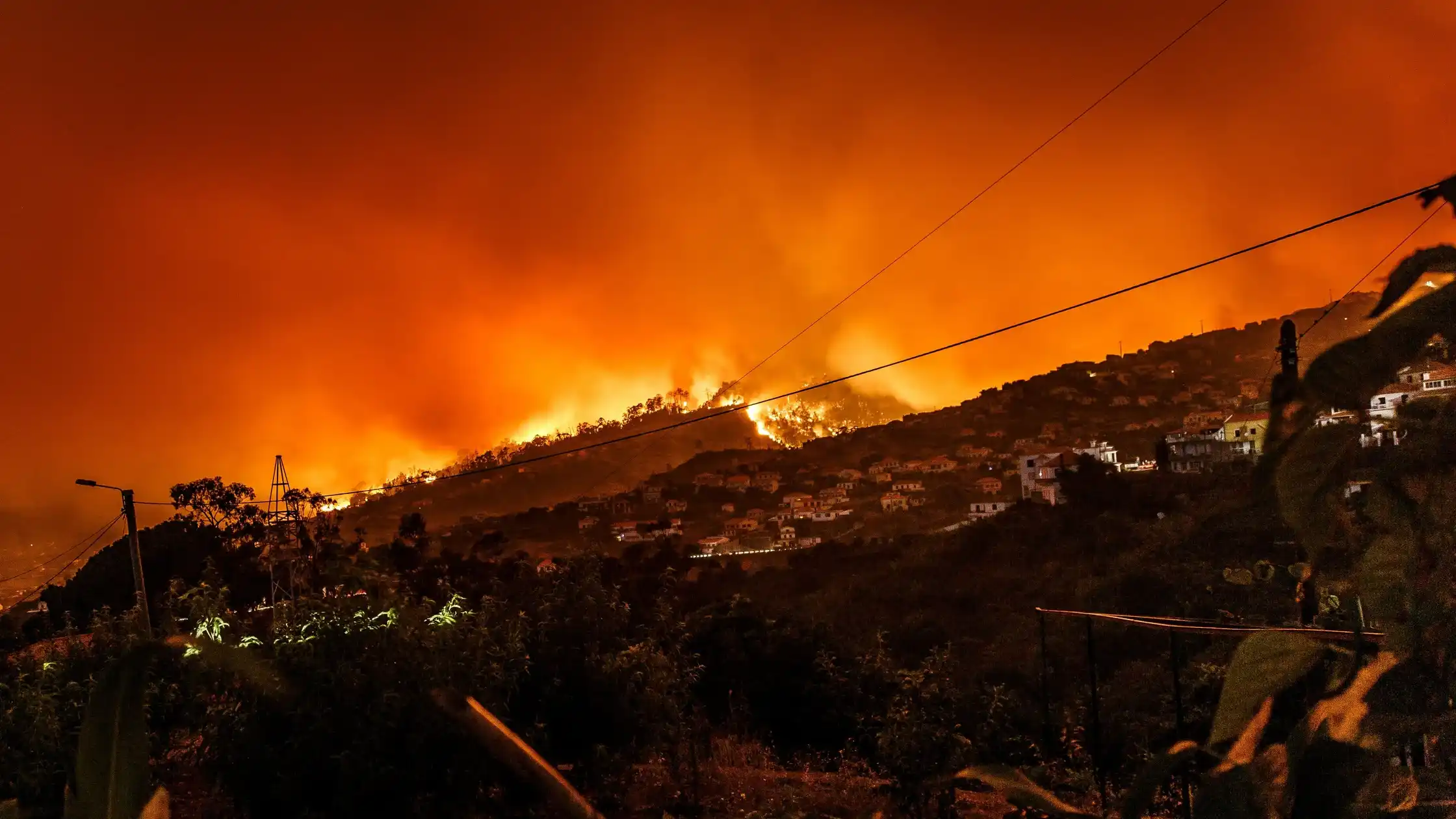
2. Storm Damage
Does renters' insurance cover storm damage? Yes, if the wind, hail, or lightning damages your things. You're probably protected if a storm knocks a tree through your window and water damages your laptop.
But if flooding lets water into your property, regular renters' insurance won't assist. Only water that gets in via damage caused by the storm, such as a broken window, is covered. Keep a note of broken things and preserve all the receipts for repairs.
3. Earthquakes
Standard policies do not include earthquake protection. Most of the time, the answer to the question "Does renters' insurance cover earthquakes?" is no. You are accountable for the damage if an earthquake knocks over your shelves and damages your TV, unless you have earthquake insurance.
This supplementary coverage might also assist with living expenses if your residence becomes dangerous for a short time. Always think about getting this coverage if you live in an area that is likely to have earthquakes.
4. Fire
Does renters' insurance cover fire? Yes, fire and smoke damage are core protections. Your coverage will help you buy new furniture and devices if a fire in the kitchen ruins them. Some expensive things, including cash or jewelry, have lower coverage limitations.
The landlord is in charge of the building itself. Make a list of everything you lost in the fire, save your receipts, and call your insurance company as soon as possible. If you can't remain in your house, loss of use coverage will pay for motels and food.
5. Flood
One of the biggest gaps is flooding. Does renters' insurance cover floods? No, flood damage is always excluded. You need separate flood coverage if your apartment is flooded by a storm or strong rain. Some private insurers and the National Flood Insurance Program (NFIP) provide this.
If you reside in a flood zone, you should get this additional coverage. Keep a list of all your things and ask your insurance company about renters' insurance that covers floods.
6. Wildfires
Does renters' insurance cover natural disasters like wildfires? Yes, wildfires' smoke and flames are covered. Your coverage will pay up to your maximum if a fire damages your sofa or devices.
Some insurance may have unique regulations or higher deductibles in places with a lot of risk. If you have to leave, save receipts for motels and meals. Loss of use coverage usually pays for these things.
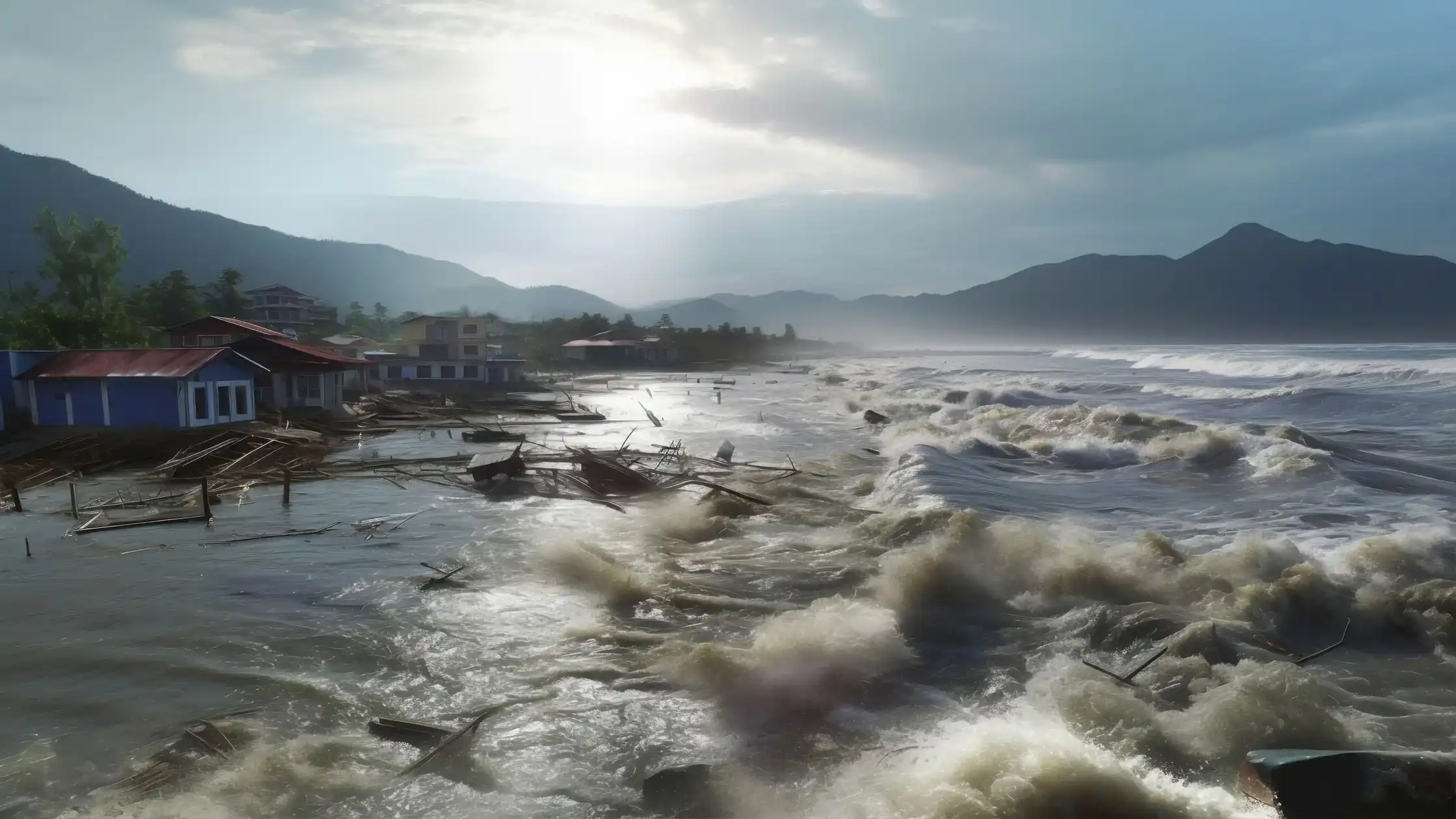
7. Hurricanes
Does renters' insurance cover hurricanes? Partially. Wind, hail, lightning, and fire from hurricanes are covered. If a hurricane breaks your windows and rain damages your property, you’re protected.
But flooding from storm surge is not included; you need both hurricane renters' insurance and a separate flood policy for full protection. In hurricane-prone areas, review your policy for named storm deductibles and buy extra coverage before hurricane season.
8. Other Natural Disasters (volcanic eruptions, landslides, etc.)
Some policies cover volcanic eruptions and related ash or fire damage, but most exclude landslides, mudslides, and earth movement. Earthquake and flood damage from a volcano are not covered unless you have those specific policies. If you live near a volcano or in a landslide zone, check your policy and consider special add-ons.
What to Do If Your Tenant’s Renters' Insurance Does Not Cover a Natural Disaster?
When calamity hits, tenants may just find that their coverage is not enough. There may be a flood that floods the apartment or an earthquake that rattles the structure.
They want to know, "Does renters' insurance cover natural disasters?" and find out that the answer is no for certain instances. Here are the following steps for both renters and landlords.
Handling Damage and Claims
After a crisis, you need to act quickly. Take clear pictures and videos of all the damage first. For instance, if a storm floods your living room, take pictures of the water and the broken furniture. If a wildfire damages electronics, write down what you lost.
Keep all of your receipts for maintenance or new purchases. Get in touch with your insurance company immediately. Ask directly: “Does renters insurance cover floods?” or “Does renters insurance cover earthquakes?”
If the answer is no, seek help from FEMA, local government, or disaster relief groups. These organisations may offer grants or temporary housing if your renters' insurance covers flood or earthquake claims that are denied.
Working with Tenants to Find a Solution
Open and honest talks help prevent future problems. LeaseRunner suggests discussing coverage needs before signing any lease. If a tenant lacks hurricane renters' insurance or flood protection, landlords can recommend trusted insurers.
Guide tenants to buy extra policies for high-risk areas. For example, if your property is in a flood zone, provide information on progressive hurricane insurance or flood insurance options. Tenants should also ask about renters' insurance without a credit check if approval is a concern.
Additional Insurance Options for Landlords
Landlords need to maintain their own property insurance up to date. Before moving in, residents must provide evidence of renters' insurance. Include in the lease conditions that describe the types of damage that must be covered, such as tornadoes, storms, and fires.
Look into landlord insurance that covers lost rent or repairs after a calamity. LeaseRunner's renter insurance service lets you keep track of and check each tenant's insurance, so you always know who is covered and who needs extra coverage.
How Renters' Insurance Can Protect Landlords During Natural Disasters?
A lot of landlords want to know whether renters' insurance covers natural disasters. The solution is good for both renters and landlords. Landlords have an easier time when their tenants obtain renters' insurance.
Liability Coverage
Liability insurance doesn't cover the catastrophe itself. But it helps if a renter hurts someone or damages property. For instance, if a visitor falls and breaks their leg while leaving during a storm, liability insurance may cover their medical costs.
If a renter mistakenly starts a fire that spreads, their liability insurance may pay for the damage. This prevents landlords from being sued and having to pay a lot of money.
Tenant Property Protection
Landlords don't have to pay for tenants' lost or broken things if they have renters' insurance. Renters' insurance will compensate for things like a tornado destroying a tenant's TV or a wildfire ruining their furnishings. This eliminates fights about who should pay.
It helps maintain the positive connection between the landlord and the renter. Tenants should inquire, "Does renters' insurance cover tornadoes?" “Does renters' insurance cover fire, though?” to find out what they are covered for.
Temporary Housing Costs
Renters' insurance may cover the cost of hotels and food if a calamity leaves a rental unlivable. For instance, after a storm or flood, renters may remain in a hotel while the repairs are being made. This implies that landlords don't have to look for or pay for temporary homes.
Policies like hurricane renters insurance or progressive hurricane insurance may assist renters in paying for these things.
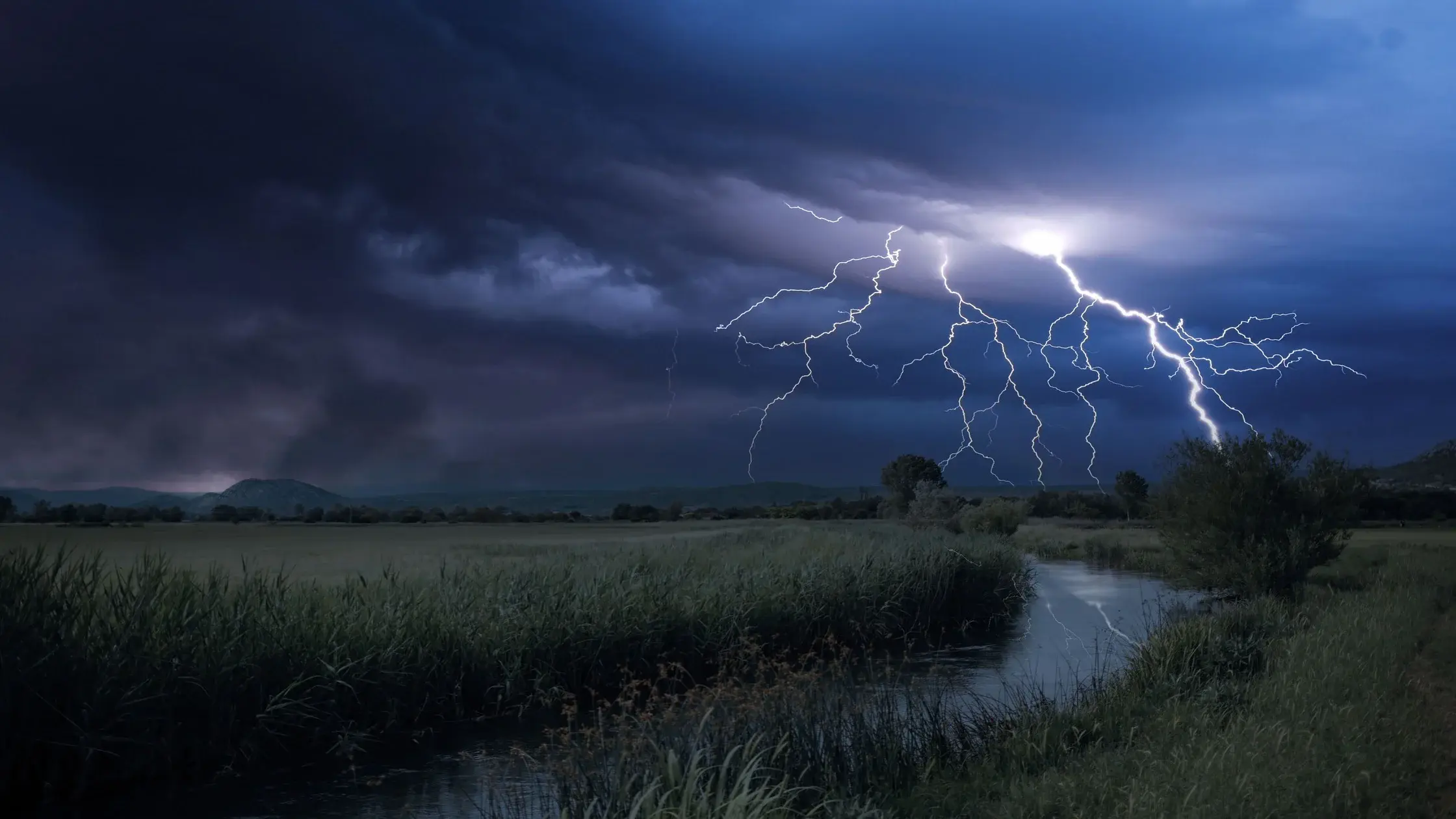
State-Specific Considerations for Renters' Insurance and Natural Disasters
Different states have different risks of natural disasters and different insurance needs.
1. California: Wildfire-prone areas
In California, wildfires are always a concern. Standard renters' insurance covers damage from fire and smoke, but not from earthquakes or mudslides. Tenants should think about getting earthquake insurance and looking over their loss-of-use benefits.
LeaseRunner suggests that both landlords and renters thoroughly read the insurance exclusions and talk about the hazards in their area.
2. Texas: Hurricanes and flooding
Texas has hurricanes, tornadoes, and a lot of floods. Renters' insurance does not cover flood damage, although it does cover wind and hail damage. Texas renters should constantly think about getting separate flood coverage. Landlords may aid by telling tenants about local dangers and insurance alternatives.
3. Florida: Hurricane
Florida’s hurricane season brings intense wind, rain, and flooding. Does renters' insurance cover hurricanes? Only partially. Wind and hail damage are included, but flood damage is not. Tenants should secure both hurricane and flood insurance for complete protection.
4. Other States with high natural disaster risk
States in Tornado Alley (like Oklahoma and Kansas), the Midwest, and the Gulf Coast each have unique risks. LeaseRunner advises tenants to assess local hazards and adjust their insurance accordingly. Always ask your insurer: Does renters insurance cover natural disasters that are common in your area?
Can Landlords Be Held Responsible for Tenants’ Lack of Renters' Insurance?
Many landlords want to know: Does renters' insurance cover natural disasters? They also ask if they could be in trouble if a tenant does not have insurance. In most cases, landlords are not responsible for a tenant’s lost or damaged property.
If a tenant does not buy renters' insurance and a fire, tornado, or flood destroys their things, the landlord does not have to pay for the loss. For example, if a hurricane floods an apartment and the tenant has no renters' insurance coverage for flood, the landlord is not required to replace lost furniture or electronics.
But even if the law does not force landlords to pay, problems can still happen. Tenants may get upset after a disaster. They may blame the landlord for not warning them about risks like storm damage, fire, or earthquakes.
This can lead to arguments or even lawsuits. To avoid these issues, smart landlords make renters' insurance a rule in the lease.
Why Make Renters' Insurance a Lease Requirement?
Having renters' insurance protects both the landlord and the tenant. In case of an emergency, everyone understands who is responsible for what. For instance, does renters' insurance cover storms if a tornado damages a tenant's things? The renter receives money to buy new goods if the response is yes. The landlord doesn't have to fight or pay out of pocket.
Tenants who have insurance may make claims for their losses if a fire destroys more than one apartment. The building is covered by the landlord's property insurance. The renters' insurance, that the tenants have, protects their belongings. This clear demarcation cuts down on conflicts and tension.
Landlords may also prevent problems with short-term rentals. Hurricane renters insurance or progressive hurricane insurance may pay for hotels and food if a storm or wildfire leaves an apartment unlivable. The landlord doesn't have to find or pay for a place for the renters to stay.
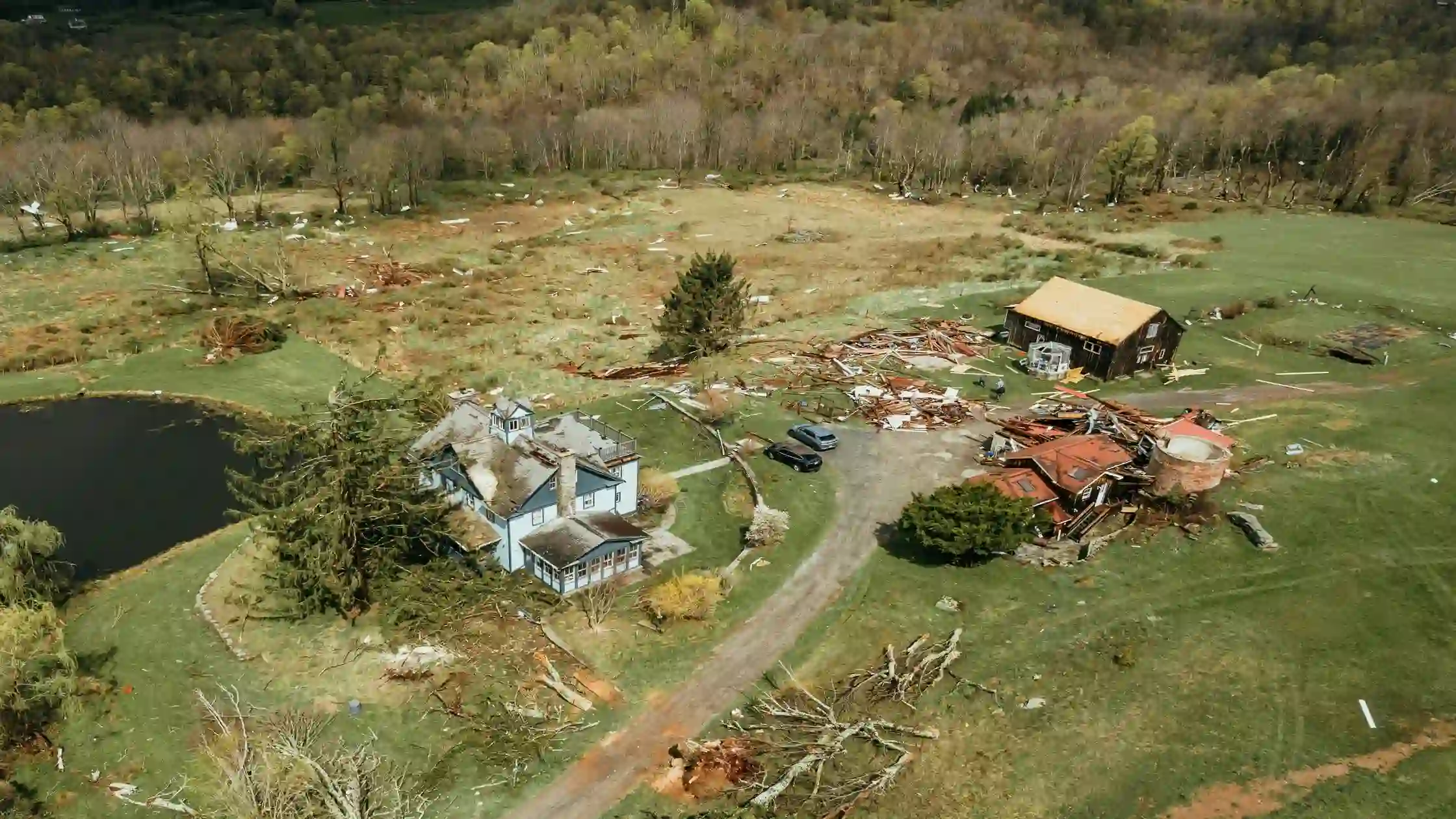
How to Require Renters' Insurance for Your Tenants with LeaseRunner?
Adding insurance rules to your lease is simple with LeaseRunner. This is how you can keep yourself and your renters safe:
- Add renters' insurance using LeaseRunner's online lease tools by selecting the option “Require Renters Insurance” at Lease Details. At the lease signing, add Renters Insurance Addendum.
- Request insurance evidence from tenants before move-in. This might be an insurance card copy or a provider letter. The coverage should cover fire, storm damage, and responsibility for natural disasters.
- You may use LeaseRunner's dashboard to keep an eye on each tenant's insurance. The system may let you know when insurance is going to run out. You may tell renters to renew their coverage before there is a break.
- Send a reminder if the renter doesn't show evidence. If they still don't obey the regulations, do what your lease says. This might involve a warning or, if necessary, commencing the eviction procedure.
Other Advice
- Inform tenants about renters' insurance advantages. Inform them that it covers fire, flood, and earthquake damage.
- Offer renters' insurance without a credit check to tenants who are worried about being approved.
- Remind renters to check their coverage every year. Their policies should vary as their risks do.
- If your region is at risk for hurricanes or other natural disasters, you may want to get supplemental flood coverage or progressive hurricane insurance.
LeaseRunner helps you safeguard all of your tenants. You keep your property safe, prevent fights, and assist renters in getting back on their feet after a calamity. When insurance is explicit and necessary, everyone benefits.
Conclusions
Does renters' insurance cover natural disasters? For many renters, this question shapes how safe they feel at home. If a fire damages your furniture or a tornado destroys your electronics, renters' insurance can help you recover. But if a flood fills your apartment or an earthquake cracks your walls, standard coverage will not help.
You need to ask, “Does renters insurance cover floods?” or “Does renters insurance cover earthquakes?” If not, buy extra protection. In hurricane zones, look for hurricane renters' insurance or progressive hurricane insurance. Always review your policy for gaps like storm damage or wildfires. Keep a list of your valuables and update it each year.
If you need renters' insurance without a credit check, many providers offer options. With LeaseRunner, you can check your risks, add the right coverage, and feel ready for any disaster. Protect your home, your things, and your peace of mind—before the next storm comes.
FAQs
Q1. Does renters' insurance cover floods?
No, you need a separate flood insurance policy for flood damage.
Q2. Does renters' insurance cover tornadoes?
Yes, windstorm and tornado damage to personal property is usually covered.
Q3. Does renters' insurance cover storm damage?
Yes, most policies cover storm-related damage, except for flooding.
Q4. Does renters' insurance cover earthquakes?
No, earthquake damage requires a separate policy or add-on.
Q5. Does renters' insurance cover fire?
Yes, fire and smoke damage are covered perils in standard policies.
Q6. Can I get renters' insurance without a credit check?
Some insurers offer policies without a credit check, but most use credit-based insurance scores to determine rates.
Q7. What is progressive hurricane insurance?
Progressive offers renters insurance that covers hurricane-related wind and fire, but you’ll need a separate flood policy for full protection.
